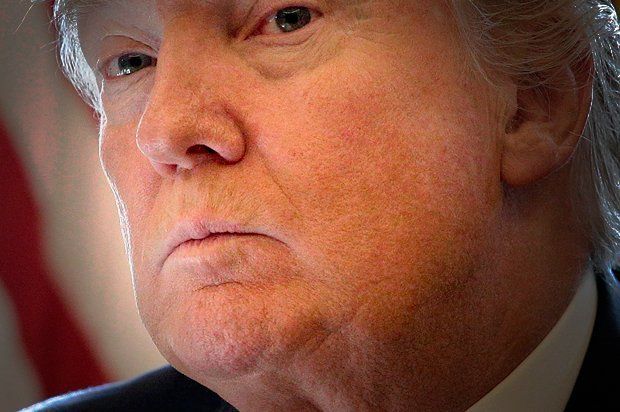By DAVID AXELROD
In the final, furious days of his reelection campaign, President Donald Trump often turned his public rallies into personal therapy sessions, at which the embattled and embittered President rued what might have been.
“Four or five months ago when we started this whole thing before the plague came in, I had made it, I wasn’t coming to Erie,” Trump told a late October crowd in battleground Pennsylvania. “I would have called you and said, ‘Hey Erie, you know if you have a chance, get out and vote.’ We had this thing won!”
Autopsies examining why Trump became the first president in 28 years to lose reelection may list Covid-19 as the proximate cause. But that is only part of the story.
Like the patient with chronic disease, Trump’s political demise wasn’t caused by the coronavirus but by the underlying and familiar deficiencies of character and leadership of America’s first reality show president.
Donald Trump defeated Donald Trump.
Even before the pandemic, many Americans had grown weary of Trump’s act – the seemingly endless tweets, tantrums and conspiracy theories that dominated his days and ours; the petty battles in which he seemed to delight, as chaos reigned around him; the penchant to lie so habitually that he galvanized a cottage industry for fact-checkers; the preening self-absorption and shocking lack of empathy for others; the apparent lack of seriousness or interest in the substance of the job; the blatant contempt for the rules, norms, laws and basic institutions of democracy; and, perhaps worst of all, his divisive, ugly appeals to racism and White supremacy.
Trump is the first president in polling history never to have received a positive job approval rating while in office, historically the most reliable predictor of a president’s re-election vote. (In exit polls Tuesday, Americans gave Trump an approval rating of 47%.)
From the moment he descended the gilded escalator at Trump Tower in 2015 and plunged into national politics with an anti-immigrant tirade, Trump saw in the raw galvanic energy of racial and cultural division a path to power.
On Tuesday, Trump harvested the bounty of his incendiary politics, winning millions more votes than he did four years ago by bringing out a tidal wave of support in small towns and rural areas, sweeping Republicans to an unexpectedly strong showing in races up and down the ballot.
But he also confronted the political version of Newton’s Third Law: For every action, there is an equal and opposite reaction.
Trump not only inflamed his own base but inspired a massive coalition of Americans, determined to end his stormy, divisive rule. Joe Biden pitched himself from the start as the antidote to Trump’s hard-edged politics — a healer, not a divider. And, on Tuesday, Biden won more votes than any presidential candidate in history, rolling up huge margins in the cities and suburban areas where most Americans live. Biden assembled a broad coalition of women, minorities and young people. The suburbs, once a bastion of Republican support, shifted against Trump.
And Biden, a moderate and Irish-Catholic from the industrial heartland of Pennsylvania, won more voters from men, seniors and working class, White voters than Hillary Clinton did four years ago.
With all of that, it is hard to remember that early in 2020, the relentless Trump was a betting, if not polling, favorite to win reelection. The economy was strong and growing, a huge benefit for a president seeking a second term. He has escaped impeachment with a Senate acquittal, boasted a prodigious war chest, all the while fractious Democrats were still casting for their nominee.
Then Covid-19 hit, exposing the nation to crisis.
Had Trump handled the virus differently from the start – had he followed the science and leveled with the country about the threat and the sacrifices it required; had he become the “wartime” leader he briefly auditioned in March or even emerged from his own battle with Covid a few weeks ago with greater humility and empathy for the suffering, perhaps he could have survived the crisis.
Instead, he could not resist the familiar impulse to spin the crisis and use it as but one more occasion to divide. Framing the effort to subdue the virus as a battle between everyday Americans he purports to champion and elite scientists and Democrats who, in his telling, wanted to needlessly “shut down” the country, Trump led the resistance to his own public health experts.
His apparent calculation was that people would tire of the hardships required, and he didn’t want the blame. Trump didn’t want to throttle down the economy upon which he planned to run, though the virus itself would do that. He knew the steps necessary would particularly inflame his anti-government base. So after reluctantly embracing a brief regimen of partial shutdowns and social distancing in the spring, he declared the mission accomplished and prematurely urged a return to business-as-usual.
Trump and his allies made the wearing of masks and social distancing a partisan issue. He urged rebellion against Democratic governors who imposed safety precautions in their states. He turned six weeks of coronavirus briefings at the White House into contentious and sometimes bizarre theater. The crisis made the cost of his chaotic, desultory approach to governing clear, as cases skyrocketed – and more than 230,000 Americans lost their lives and millions lost their livelihoods. By Election Day, the country would set staggering new records for infections.
And amid those overlapping crises came another.
When George Floyd, an African American man, died with his neck under the knee of a Minneapolis police officer over Memorial Day, the video shocked many across the nation. But rather than seeking to heal the country, Trump reacted to largely peaceful, multi-racial protests across the country by seizing on isolated acts of rioting and vandalism to stoke fear and declare himself the “law and order” president.
Biden, who entered the race by challenging Trump over his coddling of White supremacists, never strayed from a message of unity and reconciliation. But with the virus, Biden’s palpable empathy – born of his own loss and grief – took on new power. His nearly half-century of government experience, which Trump and his campaign thought a vulnerability, proved a strength for Biden at a time when people are desperate for competent response to the pandemic.
Twice a failed presidential candidate, and in the final stanzas of his long career, this was Biden’s moment. And, in the end, the President who put all his chips on the politics of division – and practiced it with a unremitting ferocity – discovered its limits.
The virus didn’t kill Trump’s re-election. He did, by reminding the majority of Americans yet again through his bungling of the worst pandemic in a century, just how costly an exhausting a reality show president can be. (CNN)
- David Axelrod, a senior CNN political commentator and host of “The Axe Files”, was senior adviser to President Barack Obama and chief strategist for the 2008 and 2012 Obama presidential campaigns












